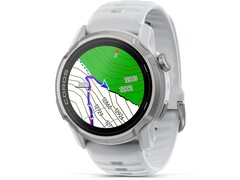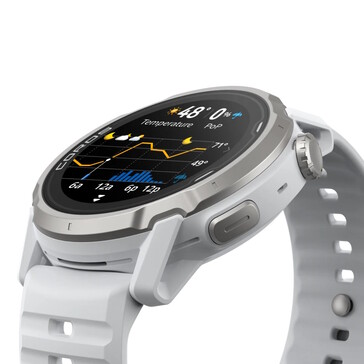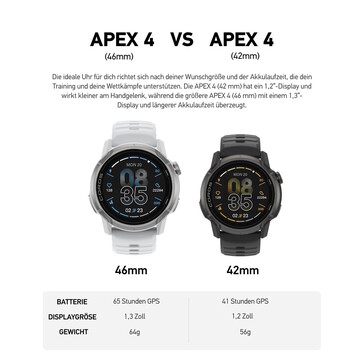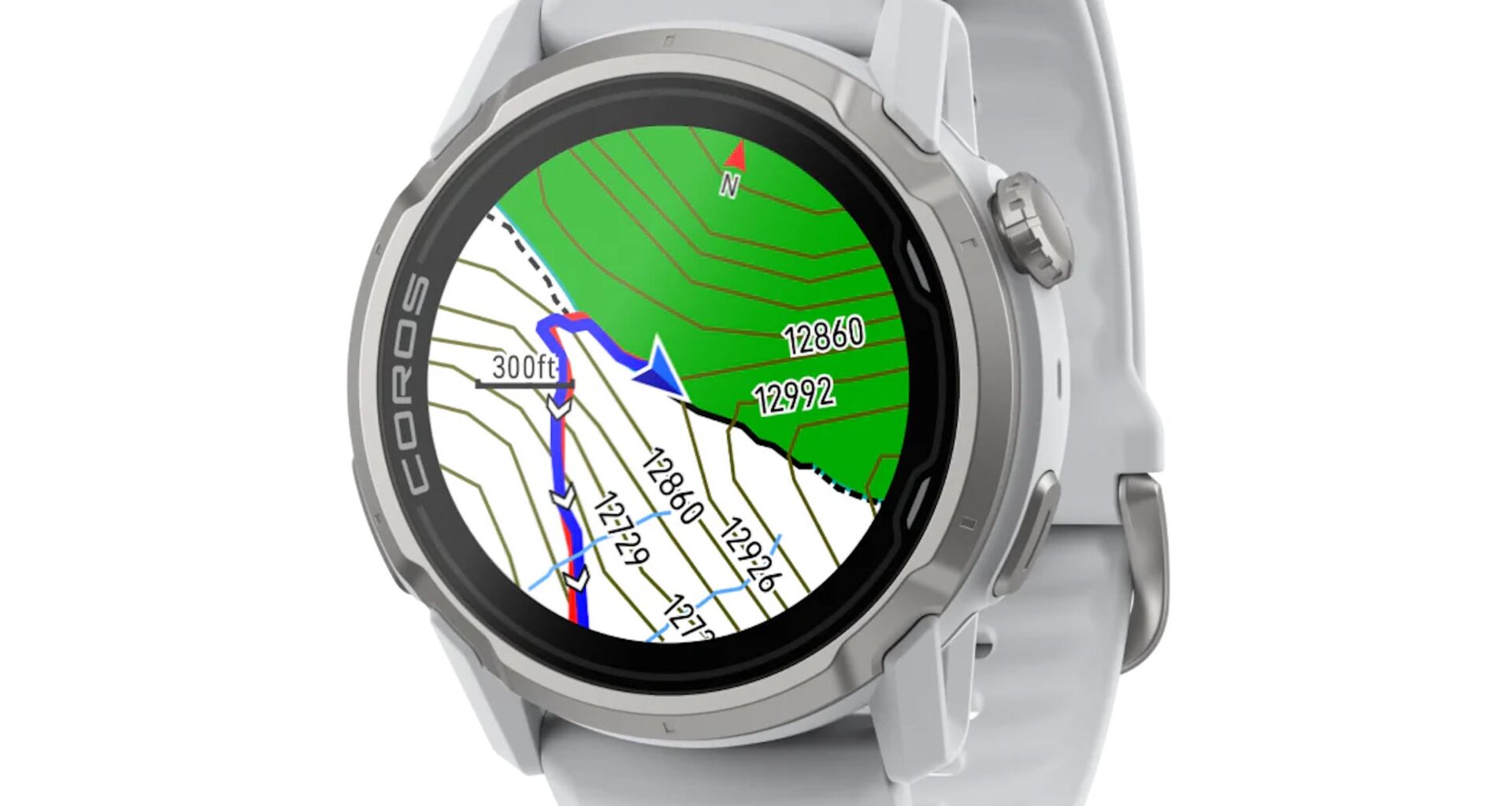 Apex 4 : New smartwatch for endurance athletes. (Image source: Coros)
Apex 4 : New smartwatch for endurance athletes. (Image source: Coros)
The Coros Apex 4 is a new smartwatch that focuses squarely on active athletes. The price is not so high, at least by current market standards, and it supports local map display and turn-by-turn navigation.
The Coros Apex 4 was recently the subject of teasers and is now available to order directly from the manufacturer. The price for the 46-millimeter model is $479, while the 42-millimeter variant is available for $50 less. Shipping is expected to take seven to ten days. The Coros Apex 4 is fundamentally a smartwatch and even features a speaker and microphone, allowing you to not only receive notifications about your pace, but also to record voice messages and, if desired, use the Coreos Apex 4 as a Bluetooth hands-free device.
However, the model is aimed very clearly at athletes, featuring dual-frequency GPS, algorithms for precise recording of runs in the mountains, and a barometer. Completed training sessions can be displayed in an appealing way as 3D flyovers, including photos. Like the Garmin Fenix models, turn-by-turn navigation is available, and free worldwide maps are also on board. Furthermore, street and trail names are integrated, as are points of interest.
Depending on the size, it features a 1.3-inch or 1.2-inch MIP screen, which is supposed to make for easy reading in direct sunlight. Battery life when recording activities is specified as 65 or 41 hours, which should be sufficient for ultramarathons. For comparison, the Apple Watch Series 9 runs out of power after just 1.5 days in typical use, without GPS and with the display always on. Sleep monitoring, heart rate variability (as thus recovery) and oxygen saturation can be monitored. Lastly, the frame is made of titanium.
 A MIP display is installed. (Image source: Coros)
A MIP display is installed. (Image source: Coros)
 The more compact version is lighter, but does not last as long. (Image source: Coros)
The more compact version is lighter, but does not last as long. (Image source: Coros)
I have been active as a journalist for over 10 years, most of it in the field of technology. I worked for Tom’s Hardware and ComputerBase, among others, and have been working for Notebookcheck since 2017. My current focus is particularly on mini PCs and single-board computers such as the Raspberry Pi – so in other words, compact systems with a lot of potential. In addition, I have a soft spot for all kinds of wearables, especially smartwatches. My main profession is as a laboratory engineer, which is why neither scientific contexts nor the interpretation of complex measurements are foreign to me.
 Translator: Jacob Fisher – Translator – 2382 articles published on Notebookcheck since 2022
Translator: Jacob Fisher – Translator – 2382 articles published on Notebookcheck since 2022
Growing up in regional Australia, I first became acquainted with computers in my early teens after a broken leg from a football (soccer) match temporarily condemned me to a predominately indoor lifestyle. Soon afterwards I was building my own systems. Now I live in Germany, having moved here in 2014, where I study philosophy and anthropology. I am particularly fascinated by how computer technology has fundamentally and dramatically reshaped human culture, and how it continues to do so.
